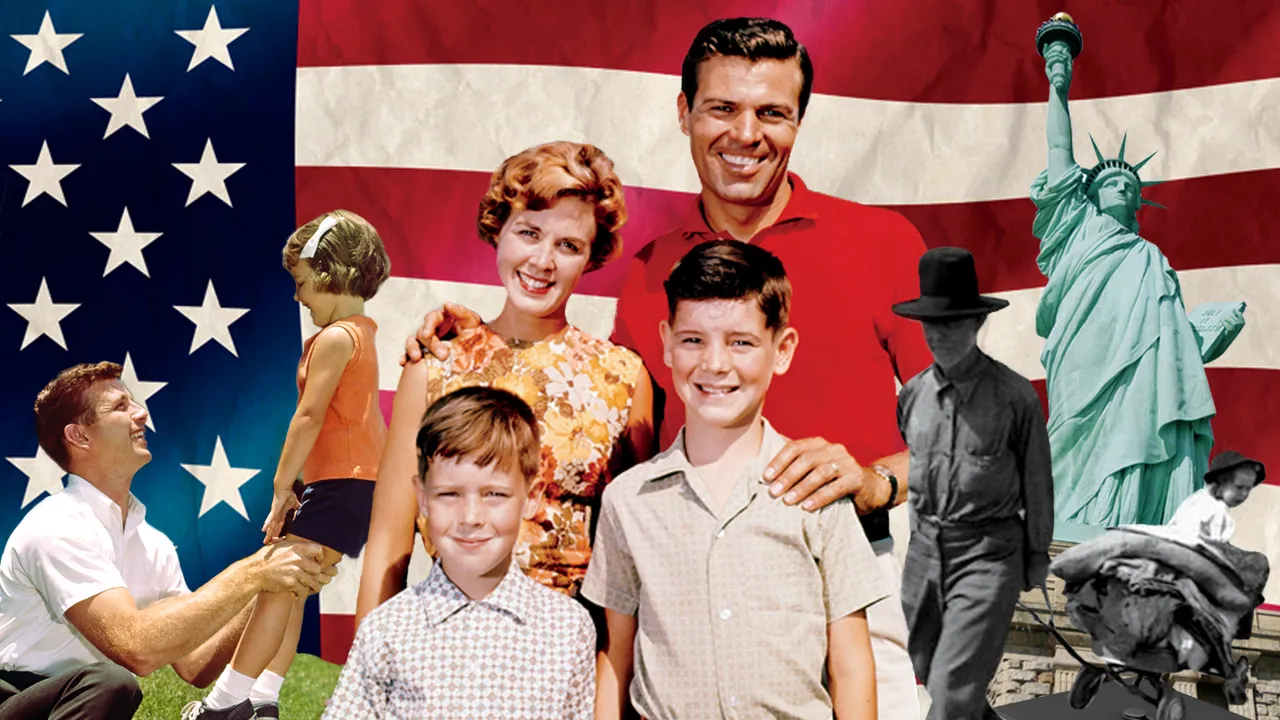By Maria-Nefeli Andreadaki,
Ah, the American Dream! How many times have we heard that phrase? How many times have we been told that hard work pays off and that success is imminent if you put your all to it? Well, dear reader, if you are a regular person like most of us, and especially if you belong to a minority group, you have probably figured out that hard work does not always pay off and success is largely based on privileges such as money, social class, skin color, etc. The world is not fair and the opportunities we are offered are not either. Meritocracy is oftentimes a myth. Now, I’m not saying all that to disappoint or discourage you from doing your absolute best. It is mostly to condemn this idea that everyone, indiscriminately, can gain power, money, and, consequently, happiness through sheer perseverance and dedication to their goal. As if money and power secures your happiness…
When trying to make a point, I often find myself turning to art and literature for help, and, having attended the recent Greek production of Death of a Salesman by Arthur Miller, I could not pass up the opportunity to use one of my favorite characters as an example. Set in the frenzy of post-WW2 Brooklyn, the play tells the story of salesman Willy Loman, who is, to me, one of the most tragic characters in literature. A man who never amounted to the dreams he had for himself, the same dreams with which he burdened his sons, destroying any kind of relationship he could have had with either of them. A man who, on the one hand, praised the United States and everything it symbolized, and on the other was being suffocated by the same country, its industrious landscape and capitalist morals that kept him living a miserable, empty life. Willy Loman was obsessed with the idea of “making it”, the illusion that one day he would not have to travel to different states to sell his products but that he would rise in the company and become successful. A company that never cared for him as a human being whatsoever, but enjoyed the profit he could produce for them. It is safe to say that neither he nor his two sons, who had developed an estranged relationship not only with their father but with themselves as well, by having to carry the burden of never being good enough in anything that they did, ended up with the happy ending they deserved. Disillusionment, at last, came to Willy in full force. Death of a Salesman is an excellent example of how the unrealistic expectations and aspirations created by the false idea of the American Dream can have detrimental consequences.

Another work that is very close to my heart and showcases the illusion of the American Dream, as well as its influence on personal relationships, is none other than The Great Gatsby by Scott Fitzgerald. I would argue that the infatuation with the American Dream and its materialistic aspect is the definitive reason why Jay Gatsby and Daisy Buchanan’s love affair perished. The Great Gatsby, set in the Jazz Era, has been viewed as a love story by many; a man of the working class spends his life amassing excessive wealth, in the hopes of, one day, being considered worthy of his greatest love, Daisy, who is a member of the high-class society and married to Tom Buchanan. Despite his efforts and seemingly rekindling his romance with his long-lost love for a little while, Daisy rejects Jay Gatsby, for the second time, choosing her unfaithful husband. However important the affair may be, The Great Gatsby is driven by the main character’s consuming need to achieve his goal of the perfect American story; to break free from the chains of his social class and, through money, be accepted as an esteemed member of high society and equal partner to the shiny girl he adores. Along the way, however, it is evident that Daisy becomes another one of Gatsby’s desired possessions, losing her humanity and gaining some kind of “otherness”. Her own decisions have also been determined by the notion of the American dream. Despite loving Jay Gatsby, the protagonist chose to tie her life to Tom Buchanan, a rich polo player, who belonged in her social sphere and could provide her with a life of ease and idleness. It can only be assumed that choosing Jay would not have been accepted by her family or social circle, since it would be absurd for a rich girl to have to provide for her husband, or even be forced to work.
Miller’s and Fitzgerald’s heroes are plagued by their obsession with wealth and blinded by their need to achieve the unrealistic. Perhaps their familial relationships and romance (respectively) would have flourished, were it not for the idea that all those houses, the glamour, and the social recognition would bring them happiness.
References
- Fitzgerald F. Scott and Matthew J Bruccoli. The Great Gatsby. (1925)
- Arthur Miller. Death of a Salesman. (1949)




